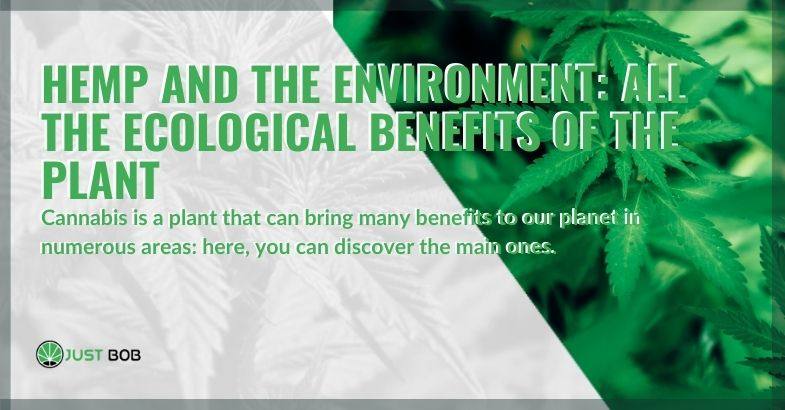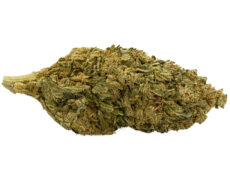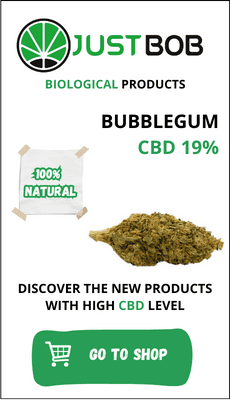Modified on: 19/04/2024
CANNABIS IS A PLANT THAT CAN BRING MANY BENEFITS TO OUR PLANET IN NUMEROUS AREAS: HERE, YOU CAN DISCOVER THE MAIN ONES
Cannabis is not just a plant from which to extract CBD oil or make inflorescences and hashish, nor is it limited to being a raw material for making paper, fuel, plastics, and textiles (although that is already a lot!).
Hemp is also a resource that can do good for the environment in many ways. For example, it can help reduce pollution, limit climate damage and generally adopt a model of sustainable industrial development.
-
 SMALL & BIG
SMALL & BIGBUBBLEGUM
Indoor | CBD – CBDA<22%
Starting from:EASTER SALE -10%
1,25CHF1,10CHF/gGrams3 5 10 20 50 100 -


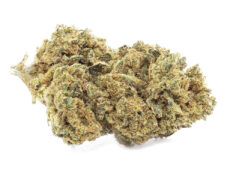
DO SI DOS
Starting from: 2,00CHF/gIndoor | CBD – CBDA < 19%
Grams3 5 10 20 50 100 -


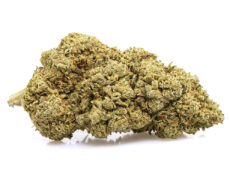
ROYAL GG#4
Starting from: 2,30CHF/gIndoor | CBD – CBDA < 40%
Grams3 5 10 20 50 100 -


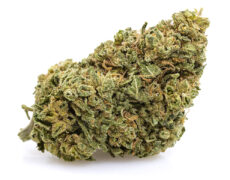
GORILLA GLUE
Starting from: 2,90CHF/gIndoor | CBD – CBDA < 20%
Grams3 5 10 20 50 100
Are you wondering how light cannabis plants can have all these effects on our planet?
Well, then you’ve come to the right place: in this article, we’re going to talk about hemp and the environment.
Here are the main positive effects of cannabis and why this plant represents a turning point for the future.
Hemp and CO2: a plant that safeguards the ozone layer
We know how much the excess of CO2 in the atmosphere is damaging the health of our planet (think of the hole in the ozone layer and the climate changes that are causing glaciers to melt). We often hear about the importance of trees in the process of storing this substance.
But did you know that marijuana is capable of capturing four times as much carbon dioxide as trees?
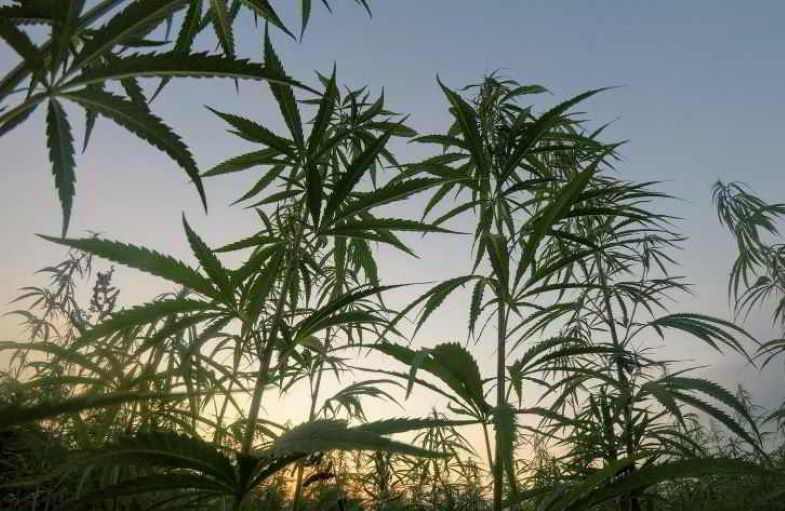

Yes, and it appears that this characteristic remains intact even after the plant has been processed.
More precisely, it seems that one tonne of dry hemp can absorb up to 325 kg of CO2.
This characteristic has been very successful in the construction industry, the sector that currently seems to have the most significant impact on carbon dioxide production.
Hemp can be used to reclaim land
Over the years, irresponsible human actions have led to areas of the world where soils have become so polluted that they are now considered unsuitable for growing food.
However, alongside this bad news, there is good news: CBD cannabis plantations can help restore soil quality.
How?
Through the action of their roots, hemp plants can absorb heavy metals and pollutants, cleaning up the soil; this process is called phytoremediation.
After being absorbed, the substances removed from the soil are metabolized by the plant or recovered (as in the case of iron and zinc).
Read also: Marijuana bud: what is it? How to recognise it and how to know its quality?
Renewable energy from hemp
The hemp plant can be processed in many ways and allows the production of a wide range of liquid, gaseous or solid biofuels, such as pellets.
In particular, it seems that biodiesel and ethanol can be made from hemp. These two substances could replace the consumption of fossil fuels for both cars and industry, significantly reducing environmental pollution and promoting the planet’s health.
In this case, the benefit would be twofold.
- By replacing petroleum-based fuels with biofuels made from legal hemp, much less pollution would be caused during the manufacturing process of the products themselves.
- The emission of toxic substances harmful to humans and the environment from the combustion process would be limited to a very low percentage.
Using more hemp helps limit pesticide consumption
Hemp can be used in many sectors to make countless products.
When substituted for other types of crops, it can significantly limit the consumption of phytochemicals and pesticides.
Why?
Hemp is much more resistant (but not immune) to the most common crop pests than many other plants.
An example is cotton.
Cotton plantations are among the most polluting on the planet: it is estimated that around 25% of all pesticides consumed globally are used to grow this particularly delicate plant, which is then used in textiles.
Replacing a large proportion of cotton crops with hemp could significantly limit the consumption of phytochemicals, improving groundwater quality and hectares and hectares of land.


Hemp for the fight against plastic
Plastic is one of the greatest evils of our time.
It is found everywhere: millions of tonnes of it are in the oceans today, and it takes many years to decompose.
What does hemp have to do with this?
It has everything to do with it!
Just like corn and other plant species, marijuana plants can also be used to produce bioplastic.
The advantage of focusing on hemp bioplastic is that this material, as well as being completely biodegradable, seems to have exceptional characteristics, even superior to the petrochemical plastic we are used to using today.
Read also: CBD crystals: what are they and how do they work?
To conclude
So far, what you have read are just some of the main benefits that hemp plantations can bring to our planet.
Making paper, plastic and textiles, or building materials, biofuels, and many other products from cannabis means less pollution during production and use of the products themselves and improving the quality of the cultivated land, air and water.
In short, if the cultivation and consumption of CBD buds were to increase across the planet, replacing so many other toxic raw materials, the entire global ecosystem would benefit!
Fortunately, more and more research is being carried out in this area, and more and more countries are becoming aware of the issue, welcoming the use of hemp in various sectors with open arms.
Cannabis is a plant with a thousand properties. Suppose you are an active supporter and enthusiast after this in-depth analysis. In that case, we invite you to visit our JustBob.ch online store, where you can buy inflorescences and derivatives to collect.
Choose from legal hashish, CBD oil and buds from the best genetics, and we are sure you will find the right products for you.
We look forward to seeing you in our cannabis CBD shop!


